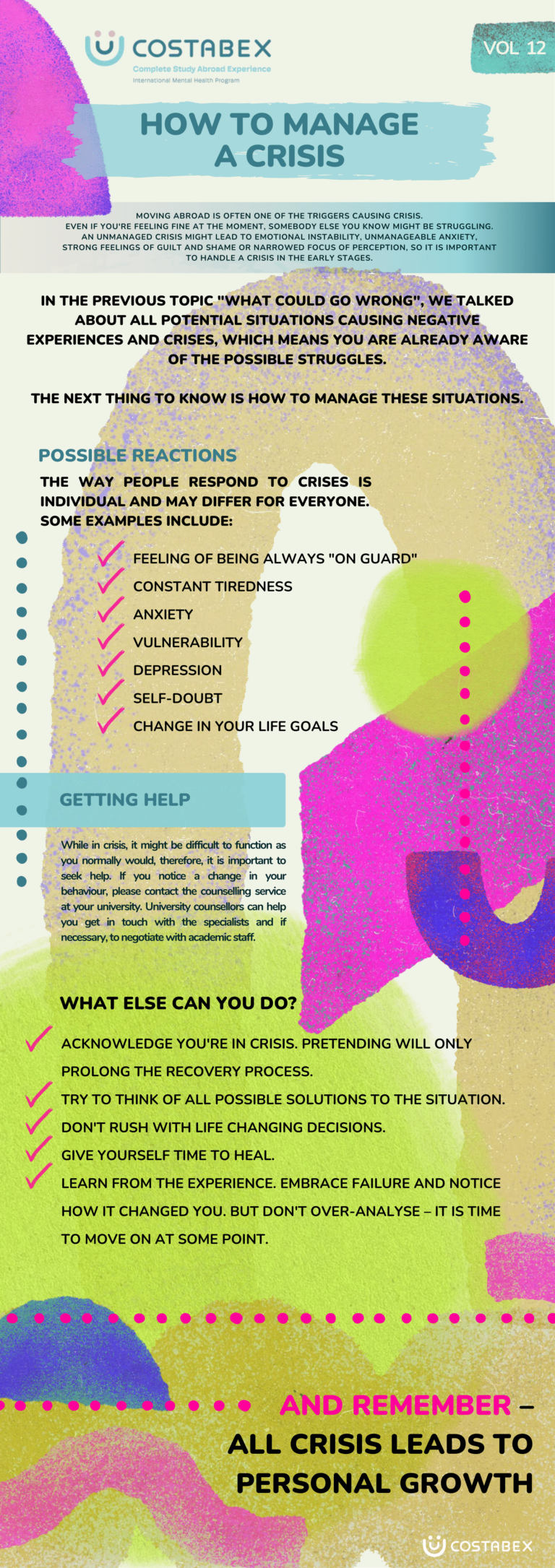Moving abroad is often one of the triggers causing crisis. Even if you‘re feeling fine at the moment, somebody else you know might be struggling.
An unmanaged crisis might lead to emotional instability, unmanageable anxiety, strong feelings of guilt and shame or narrowed focus of perception, so it is important to handle a crisis in the early stages.
In the previous topic „What could go wrong“, we talked about all potential situations causing negative experiences and crises, which means you are already aware of the possible struggles. The next thing to know is how to manage these situations.
Possible reactions
The way people respond to crises is individual and may differ for everyone. Some examples include:
- Feeling of being always „on guard“
- Constant tiredness
- Anxiety
- Vulnerability
- Depression
- Self-doubt
- Change in your life goals
Getting help
While in crisis, it might be difficult to function as you normally would, therefore, it is important to seek help. If you notice a change in your behaviour, please contact the counselling service at your University. University counsellors can help you get in touch with the specialists and if necessary, to negotiate with academic staff.
What else can you do?
- Acknowledge you‘re in crisis. Pretending will only prolong the recovery process.
- Try to think of all possible solutions to the situation.
- Don‘t rush with life changing decisions.
- Give yourself time to heal.
- Learn from the experience. Embrace failure and notice how it changed you. But don‘t over-analyse – it is time to move on at some point.
And remember – all crisis leads to personal growth.
Useful resources:

